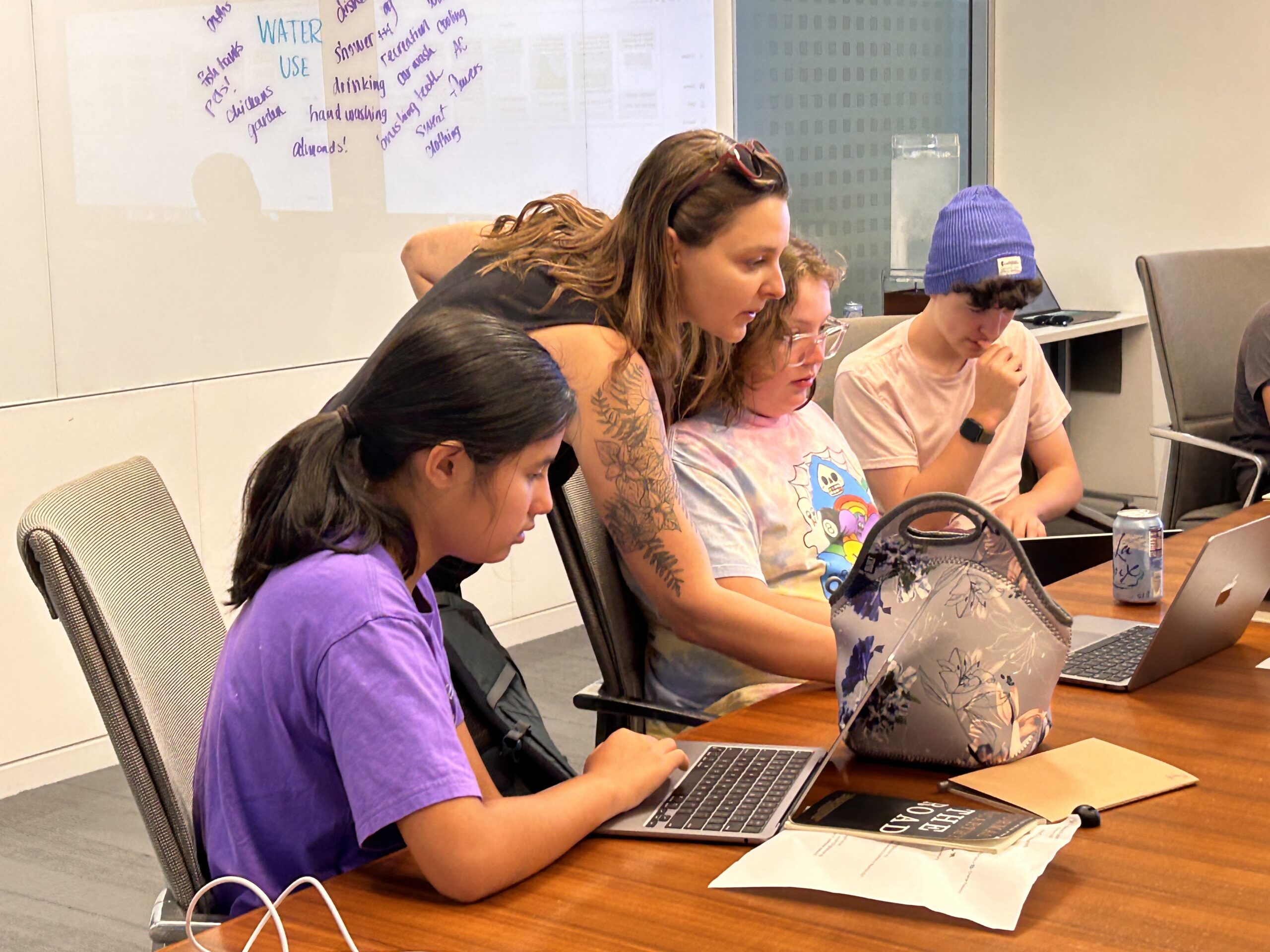9th Graders begin with a three-week, social impact immersive course, comprised of skills classes in data analysis, research, social entrepreneurship, and artificial intelligence, plus daily field studies blocks in the city of San José on one of three themes: Art as Activism, Water as Engineered and Natural Landscape, and Civics in Action. In their first field study, the Water group marveled at the amount of clean water available to us (one student remarked, “I know. It’s wild.”)
“I know. It’s wild.”
Students brainstormed how they use water, then used watercalculator.org to test their ideas, and discover factors they might have missed. They chatted with each other and their three teachers about things like,
“What’s a grey water system?”
And, “Woah! Diet makes a big difference.”
After journaling about their footprint calculation and questions it generated, we walked two blocks to the Guadalupe River. Students gathered water samples, which they tested later in the week for phosphates, nitrates, hardness, turbidity, bacteria, pH and more (they will collect samples over the three weeks from various locations in our watershed and compare their results during data analysis class-time). They then visited a mural on the river’s bank, Muwekma Ohlone: We Are Still Here, which depicts the river’s historical use by the native people of present-day San José, as well as its current importance for their modern lives. They also sorted and discussed a series of images from the river, and nearby watershed areas, from the late 1800s to the present. These each contributed to students’ curiosity and understanding of how changes to waterways have been both intentional and unintentional, and how navigating competing human needs can be challenging.
To wrap up the week, their Friday field studies featured guest speaker James Workman, author of The Heart of Dryness, who explained to students how his business helps residents and businesses in cities, including San José, become climate resilient in a drought-prone area. Students were thrilled by James’ entrepreneurial solutions and ideas, and ignited with even further questions.

